
Some people absolutely love maths. The logic of equations and numbers can be really satisfying, especially when applied in the real world. However, numbers and sums don’t make sense to everybody. Currently, in the UK, students only have to study maths until they’re 16 years old. The Prime Minister, Rishi Sunak, recently announced plans for all students in England to study the subject until the age of 18. Although it’s useful for future jobs, is it fair for people who don’t like maths?
It may not seem like it, but numeracy (skill with numbers) is actually a very important ability that can be used in everyday life. Simple activities, like shopping, baking and cooking, often require a bit of maths. Encouraging people to maintain these skills until they’re 18 could be helpful for them afterwards.
Research has shown that studying maths for longer helps with brain development. Scientists at the University of Oxford found that students who stopped studying maths after their GCSEs had lower amounts of a brain chemical that supports memory, learning, reasoning and problem solving. Professor Roi Cohen Kadosh – the scientist who led the study – warned that pupils who stop studying maths at 16 could be at a disadvantage compared to those who continue with maths education.
この記事は The Week Junior Science+Nature UK の Issue 60 版に掲載されています。
7 日間の Magzter GOLD 無料トライアルを開始して、何千もの厳選されたプレミアム ストーリー、8,500 以上の雑誌や新聞にアクセスしてください。
すでに購読者です ? サインイン
この記事は The Week Junior Science+Nature UK の Issue 60 版に掲載されています。
7 日間の Magzter GOLD 無料トライアルを開始して、何千もの厳選されたプレミアム ストーリー、8,500 以上の雑誌や新聞にアクセスしてください。
すでに購読者です? サインイン
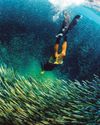
What happens to the ocean if we take out all the fish?
Find out about the vital role fish play in sea life.

Cleopatra's lost tomb
You told us that historical mysteries capture your imaginations, so here's an ancient Egyptian riddle.
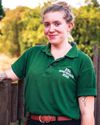
Kate Speller
For our readers' issue, we met a zookeeper who works with big cats.

Voyager 1 turns back on
At more than 15 billion miles from Earth, the Voyager 1 spacecraft is the most distant human-made object in space.

Orangutan uses plants to heal wound
For the first time ever, a wild animal has been observed healing a wound using a plant as medicine.
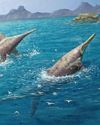
Mammoth marine reptile found on UK beach
Scientists believe the ichthyosaur could be the largest ever found.
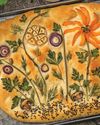
THE LAB
Three things to make and do

The brains between the sticks
Is it true that goalkeepers see the world differently?

ALIEN HUNTERS
JD Savage blasts off on an out-of-this world quest to find life beyond Earth's borders.
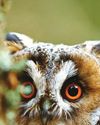
NATURE IN FOCUS
Join in with Science+Nature's trail at Cheltenham Science Festival.